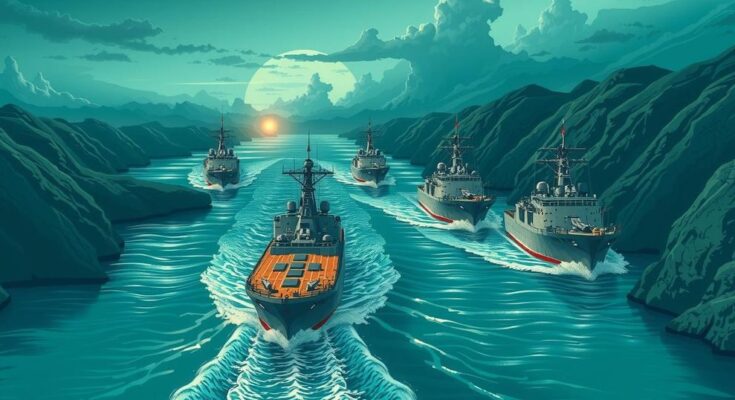U.S. military explores options for Panama Canal access at Trump’s insistence; concerns over China’s control highlighted. Interim national security guidance suggests potential military action. Treaty obligations with Panama are emphasized, while any foreign seizure could breach international law.
The United States military is reportedly seeking options to ensure full access to the Panama Canal, following statements from President Donald Trump who has voiced intentions to “take back” control of this strategically critical waterway. While specific strategies have not been disclosed, officials have indicated that military action may be considered as part of an interim national security guidance established by the current administration.
In 2022, the Pentagon published a National Defense Strategy outlining military priorities, while the interim guidance suggests broad policy directives ahead of a more detailed document. There has been no immediate comment from the Pentagon regarding the situation. The White House has allegedly tasked the Pentagon with developing options related to the Panama Canal.
President Trump has claimed that China’s influence over the canal poses a threat to American interests, alleging that Panama did not uphold commitments made during the canal’s transfer in 1999. Any attempt by a foreign nation to seize control of the canal could breach international law. Moreover, the United States and Panama have a treaty obligation to defend the canal’s neutrality, allowing for unilateral measures if necessary.
The U.S. originally obtained rights to construct and operate the Panama Canal in the early 1900s, but a treaty signed by President Carter in 1979 stipulated that control would be relinquished to Panama by the end of 1999.
In conclusion, the U.S. military is currently exploring strategies to maintain access to the Panama Canal, a move prompted by President Trump’s concerns regarding foreign control, particularly by China. Despite the lack of specific strategies at this time, any foreign seizure of the canal would likely infringe upon international laws. As stipulated in treaties, both the U.S. and Panama share a responsibility to defend the canal’s integrity.
Original Source: www.kibrispostasi.com




